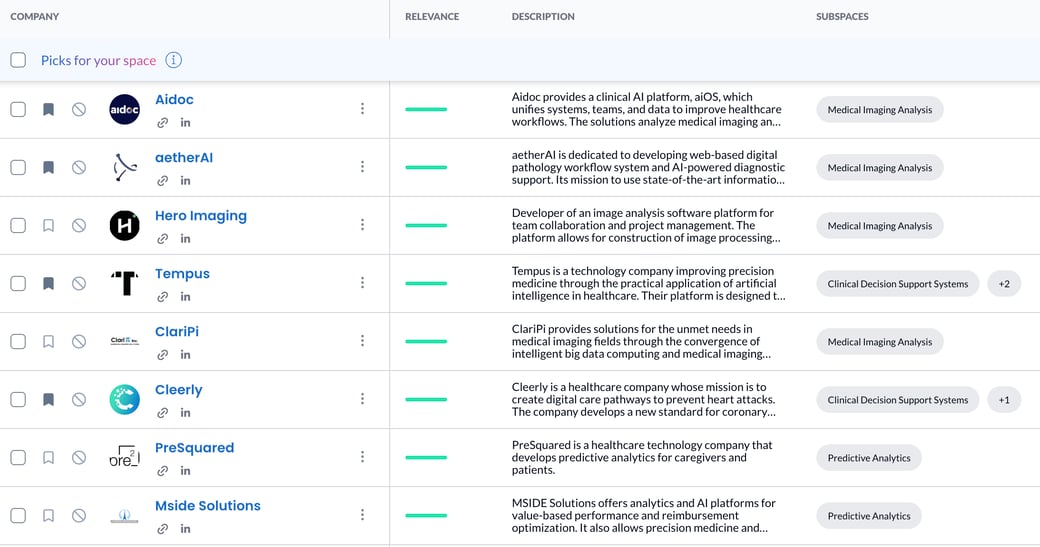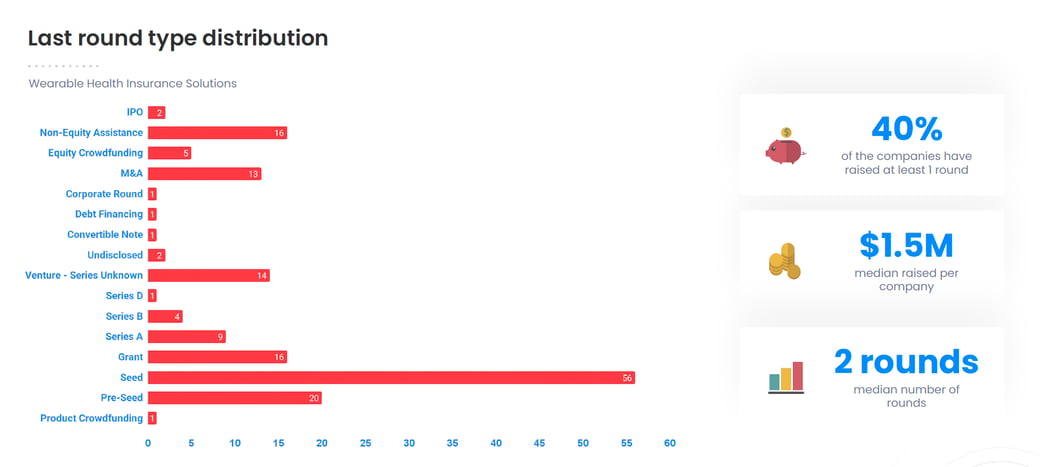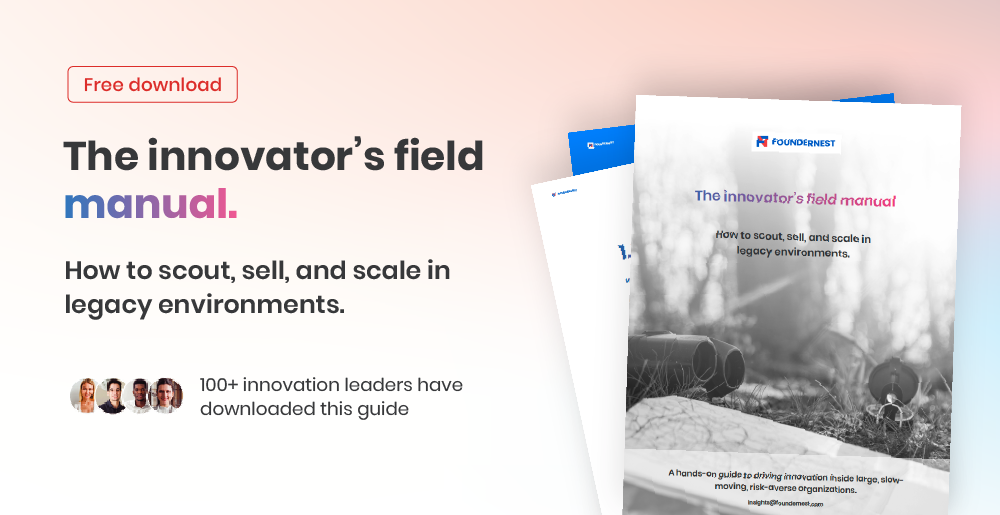It's time for another FounderNest Flyby Newsletter, where we help you stay sharp with innovation trends and insights.
In today’s newsletter:
- 🗞️ Quick hits from this week’s news
- 💡 Thoughts from our blog
- 📡 5 emerging trends from our industry radar
- 💼 This week’s market report: Wearable health insurance solutions
Quick hits.
Short and sweet - news that caught our eye this week.
McKinsey states that top performers use innovation to both optimize their core and break into new markets. They are 78% more likely to expand beyond their industry, linking innovation to revenue and growth. Their edge lies in disciplined measurement, tracking outcomes and value creation, not vanity metrics.
Corporate innovation is now a strategic, systemic process, not just a collection of side projects. KPIs for innovation vary based on ambition and stage, with centralized oversight but decentralized execution. The best teams act like internal VCs, critically managing risk and portfolio balance rather than betting on “nice-to-have” ideas.
Haier (China): Broke down traditional hierarchies, creating agile microenterprises empowered with decision-making to achieve resilience and rapid market response, rather than incremental optimization, a direct reason for outpacing rivals.
Thoughts from our blog.

Is AI slowing down? Why the enterprise “AI slowdown” is really a refocus
AI in enterprises is shifting from hype-driven pilots to specialized, domain-specific tools that integrate into workflows and deliver measurable ROI.

You asked for business transformation, so why are you measuring quick wins?
Measuring only quick wins undermines true business transformation, which requires long-term focus, structural changes, and aligned metrics to achieve lasting impact.
Industry radar.
Stay ahead of the curve every newsletter we give you 5 of the hottest topics and trends across our reference industries.
1. Healthcare
The healthcare M&A outlook for 2025 is optimistic, driven by innovation and strategic consolidation. Technologies such as telemedicine, digital therapeutics, and AI are critical drivers, with the healthcare AI market expected to grow substantially. Private equity firms are actively acquiring scalable and technologically advanced assets. Challenges include data security, compliance, and change management in AI adoption during M&A integration.

A sample of AI in healthcare companies in FounderNest
2. Transportation
The European transport and logistics market has robust M&A activitydriven by private equity and strategic buyers, with notable cross-border deals in the UK, France, and Nordics. Digital capability, scalability, and infrastructure capacity are key investor criteria. Private equity accounts for about 31% of acquisitions.
3. Property
Multiple new companies are leveraging PropTech and digital platforms to innovate property search, management, construction, and infrastructure. This indicates strong market interest and funding in smart property services, construction tech, and real estate transaction automation.
4. Retail
FRP Advisory’s Retail Conference ’25 in September announced a focus on retail investment, debt financing amid a polarized market environment. Despite economic challenges, acquisitive firms are targeting strong strategic fits, particularly in beauty and personal care, and turnaround investors are active in distressed assets. Asset-based lenders are also supporting retail operational and growth financing.
5. Finance
Private equity GTCR closed a $4.8 billion acquisition of Zentiva in September 2025. Other recent finance-related deals include Madison Dearborn’s $2.7 billion acquisition of Aon’s Wealthspire wealth management unit and PNC Bank’s $4.1 billion purchase of FirstBank. Financial market infrastructure is active with KKR’s pursuit of OSTTRA following Blackstone’s Refinitiv acquisition success.
Get in touch to see how we can help
Market report: Wearable health insurance solutions.
Comprehensive, personalized industry insights - straight from our platform.

Wearables are moving from wellness perks to core insurance infrastructure, powering real-time risk assessment, claims reduction, and member engagement.
- The space has attracted $1.85B+ in funding across 408 companies we analyzed, with funding CAGR of 36.6% over the past five years.
- Wellness monitoring dominates, while chronic disease managementand emergency response wearables are scaling fast for insurers and employers.
- 22% of the companies we analyzed were based in the UK.
- APIs and smart textiles are reshaping adoption, enabling seamless integration into insurance platforms and comfortable, medical-grade wearables.
- Top innovators include Quantiq (camera-based vitals), Thryve (wearable data API), Nanoleq (smart textiles), and Oura (smart ring),bridging consumer health data with insurance products.
- 40% of companies have raised at least one funding round.
Find the full research here and 15 companies we’ve picked out that may catch your eye.

Thanks for reading! If you want to explore the space for yourself, or any others, you can run your own search directly in FounderNest.
Feel free to suggest a topic for us to dive into next! If you have any questions, feedback, or just want to connect you can get in touch or connect on LinkedIn.

